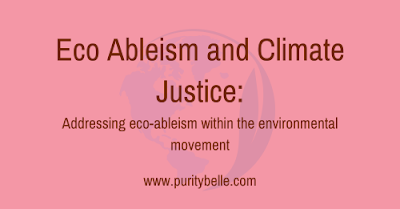Communication and Climate Change
 |
| Protect Life on Earth |
One thing I have been thinking about a lot, though, is specifically how do we communicate the urgency and actually mobilise people to create the huge change we need? My mind has been going down several different tracks on this and I suppose also, having experienced positive forms of communication recently at workshops and having done a facilitation workshop myself, I have a new and deeper understanding of the value of listening and giving everyone a voice. Also, in other random background, my degree is in language and literature so the nuance and exactitude of language has been a fascination of mine for a very long time.
With all those things in mind, I'm going to try and pull together some thoughts in a coherent fashion.
One thing that I keep coming back to is that we need to change the narrative and the language around how we do things. The cult of individualisation that has come from 'progress' and economic boom times has left us unable to cooperate and has fostered a sense of competetiveness that sets us apart from others. And I mean this in a general societal sense - of course there are people and groups who have always worked together well and individuals who do their utmost for others. But there has certainly been a subtle messaging going on that it is ok to step on people to gain success, that aquisition of ostentatious wealth and power is the ultimate aim and that those who fail at this are somehow 'losers' in society. The problem with this is that 'winning' in this sense often involves doing a disservice to other human beings. And ultimately a disservice to ourselves because the drive to consume, work longer hours, achieve some measure of illusory success has led to a huge societal disconnection and a destruction of the planet.
So, if we are not invested in the world and people around us, it is difficult to make that leap into a real understanding of the existential crisis humanity is now facing. It is more comfortable and easier to ignore or deny and because for many of us, the consequence will not be immediately felt, it therefore can be filed away as 'not our problem'.
So for me, the first essential step is to rebuild relationships, to rebuild community and to begin to actively communicate in a conscious way. This isn't as easy as you might think, it can be hard to let go of ego and the alliances that divide us. For example, politics, sports, geographical location - all can both bring us together, but divide us at the same time. And for tackling the climate emergency we need to cross over the divides and work in a determined way to find common ground and galvanise government action. Another problem in relation to this is the lumbering political and bureaucratic structures we have in place and this goes from local to government to european level. Having checks and balances is of course hugely important but when they are placing huge time delays on action, they are no longer fit for purpose. Which is why I believe that building resilient communities from the ground up is something that needs to be done without delay. When we have exreme weather events (a certainty) leading to food shortages (very likely), we will be very thankful to have local sources of food and a support network so that we can take care of everyone, including the most vulnerable people.
 |
| People and Nature |
And this brings me to another communication problem - hard choices have to be made at government level but they are likely to be unpopular. Unfortunately agriculture is a huge issue when it comes to green house gas emissions and it is absolutely essential that we have frank and real discussion around this and come up with solutions which are not detrimental to the livelihoods of farmers. Ignoring and denying reality is not the answer.
The world wide denial campaign has been a long and concerted one and often funded by giant lobby groups - 'every year, the world's five largest publicly owned oil and gas companies spend approximately $200 million on lobbying designed to control, delay or block binding climate-motivated policy.' Source. Reasons for denial are many - the human desire to just stick our heads in the sand, economic concerns, belief that claims are exaggerated. Some reasons are outlined here - https://www.sciencealert.com/the-five-corrupt-pillars-of-climate-change-denial#.
I personally believe at this point that there is very little point in arguing with the climate deniers - it takes up too much time and energy that I feel can be better spent. However, I do admire those who take it on and question and challenge the fake news and incorrect information. At the moment I am trying a gentle approach and just commenting or passing on information or sharing knowledge through my Small Sustainable Steps group on Facebook.
So, what can we do to communicate the urgent need to take action? I was at an SEAI energy conference recently and had the pleasure of hearing Mary Robinson's key note address. She is a long time heroine of mine so this was a big thing for me :)
Her points to take away were as follows:
- Make it personal – do what you can to change something in your own life.
- Get angry and take action. Use your voice and your vote.
- Imagine and work towards a better world.
You might also like:
Climate Action Kildare
Eco Village Cloughjordan





Well said. I too believe building resilient communities is key to a sustainable future.
Thanks, yes I really think it is the only way forward.